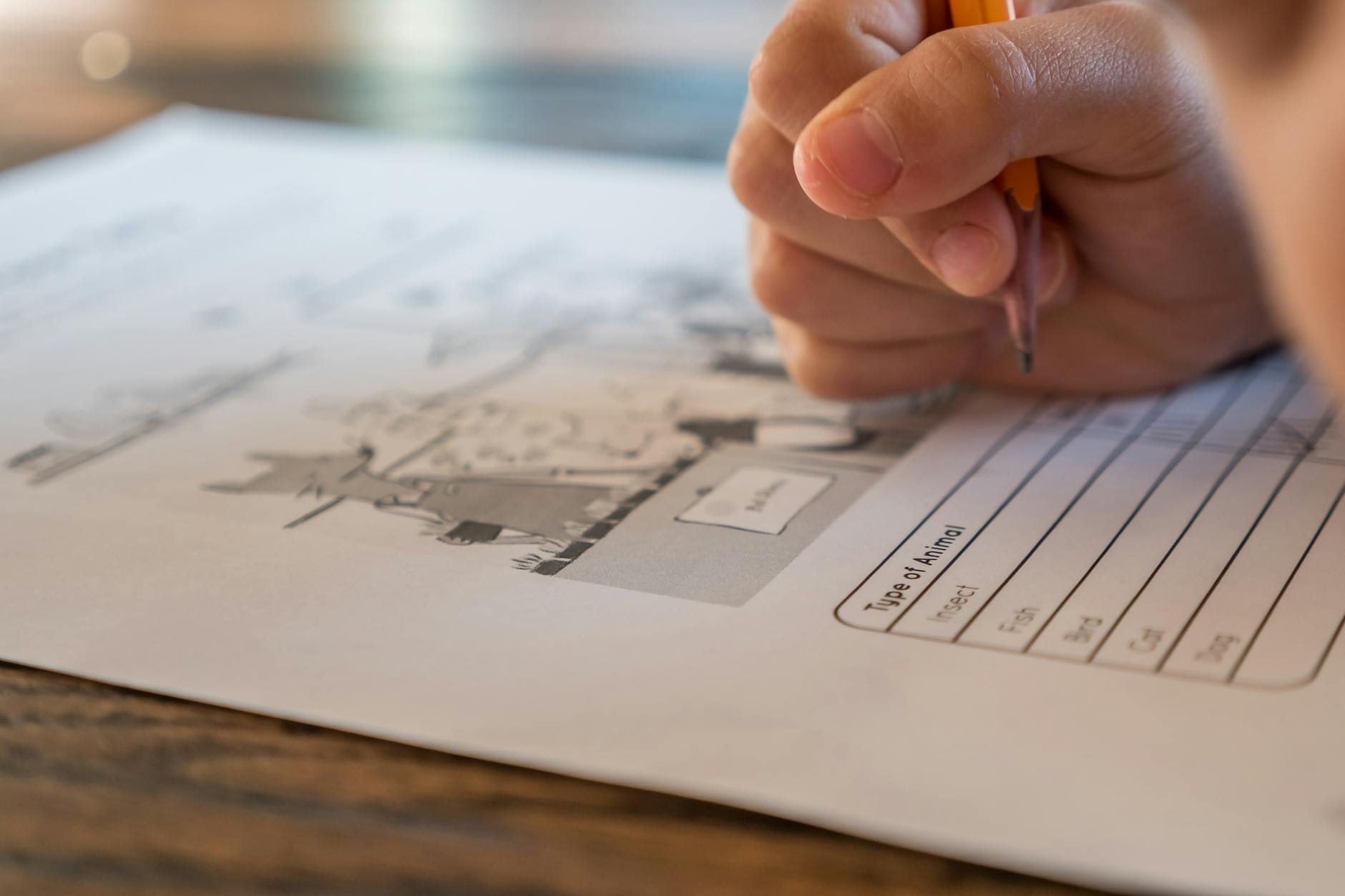How Do You Keep Your Kids Calm During Exams?
5 minuteRead

It is understandable that children are stressed during exam season because there is often a lot of pressure associated with them, particularly larger exams such as SATs, GCSEs, and A-Levels. Prolonged periods of stress can contribute to mental health issues, which is why our educational system must value and support students' mental health as well as their academic success. This makes it imperative for parents, too, to come up with methods that help their children stay calm during exams.
If they are concerned about their mental health, teachers are frequently their first point of contact. This is why we need staff across the school community to be properly trained in mental health and wellbeing, so they can initiate conversations about mental health and recognise signs of mental health problems. But back at home, too, parents need to keep an eye out in order to help keep their child calm during the stressful exam season.
Experts say there are certain signs to look for to see if your child is stressed out about exams. These include a loss of interest in previously enjoyed activities, a loss of interest in food or eating more than usual, difficulty sleeping, and negative or low moods – similar to adults.
How to help your children de-stress during exams

If you are worried about your child’s mental health during exam week or at any other time, there are a couple of ways that you can help to keep your child calm.
Make sure you talk about their exam stress and nerves
Keep things in perspective by remaining calm, positive, and reassuring. According to a national children's mental health charity, 'a simple conversation can help children acknowledge what they're struggling with and how it makes them feel.'
Remind your child that feeling anxious is normal.

Reassure your child that experiencing anxiety is normal. Exam anxiety is a natural reaction. The key is to channel these nerves for good. You can even tell them about times when you were stressed or worried and how you overcame your fears.
Help your child to study
Make sure they have a quiet, comfortable place to work and study. Inquire about how you can best assist them with their revision and establish a routine by rearranging the family's schedules and priorities to suit them.
'Ask them how you can best support them with their revision,' suggests an expert. 'Assist them in coming up with practical ideas to help them revise, such as creating a revision schedule or obtaining past papers for practice.'
Choosing the best study environment can be extremely beneficial. If possible, work at a desk in a room with a closed door. Sort everything into neat, small piles so you don't drown in paper and books. You can get ideas and assistance for this from student-only forums that are available online.
Changing up your revision methods can also help you avoid textbook burnout. If you just stare at your Spanish verb conjugations on the page for hours on end, your kids' brains will probably go verb-blind. To keep you engaged with the material, mix in some variety and interact with online study activities.
A psychologist and co-founder of a mental health and self-development platform also suggests visualising the exam room before entering it, associating it with something positive and recalling previous exams where your children performed well. "You're going to feel stressed and nervous, so take a moment to breathe deeply – countdown from 10, and repeat the breathing exercise a few times," he says. "Try progressive relaxation if you find yourself in your assigned seat and overwhelmed with stress." This entails tensing and relaxing various muscle groups in your body. Actors use this method before going onstage, so repeat until you feel calm."
Make sure your child eats well
A well-balanced diet is essential for your child's health and can help them feel better during exam times. However, a small treat, such as their favourite meal or allowing them to choose their own breakfast for the week, is a great way to help them look forward to something and take some of the pressure off their exams.
Encourage exercise during exams

"Exercise can help increase energy, clear the mind, and relieve stress." "It doesn't matter what you do – walking, cycling, swimming, football, and dancing are all effective," a professional advises. Find a fun physical activity to do with your child, or if they are involved in school clubs or sports, encourage them to keep up their participation during exam week.
Don’t add to the pressure
It's natural for parents to want the best for their children, but you may unknowingly be adding to the stress they're already under. According to experts, many of the children who contact Childline believe that their family is the source of the majority of their exam stress. "Be reassuring and positive before your child takes a test or exam," they advise. "Make them understand that failing isn't the end of the world." If things don't go as planned, they may be able to retake the exam. Instead of focusing on the questions they struggled with, discuss the parts that went well. Then, rather than dwelling on things that cannot be changed, move on."
After study sessions are over
When your child finishes a study session, encourage them to take a break from their books and recharge. It's a good idea to keep the following activities in mind.
Allow for naps after a productive study session.
Allow naps after a good study session.
Allow your tired children to take a nap after finishing their homework. Sleep aids in the retention of information.
Send kids outside for fun and fresh air.
Allow energetic children to shoot hoops or skateboard. Before exams, exercise and play help to relax the body, mind, and spirit.
Things to keep in mind at bedtime
Rest and relaxation are critical for test day success. Experts suggest making them both a priority, especially on the nights leading up to test day.
Kiss phones goodnight.
Dock and recharge phones, tablets, computers, and other electronic devices outside the bedroom one hour before bed. (Kids will use them if they are within reach.)
Help kids relax and recharge.
Relaxation techniques can help children focus. Meditation, guided imagery, and relaxing each part of the body (from the feet to the top of the head) can improve performance and bring a sense of calm. Of late, Schools are even teaching children to meditate, and the results are promising!
On test day
Remind kids to breathe deeply — and often.
Shallow breathing and breath-holding are triggered by stress and anxiety. This deprives the brain of oxygen, impairing memory recall, focus, and concentration during testing. This is why children can forget what they know.

Write, Record and Answer! Consume Unlimited Content! All you need to do is sign in and its absolutely free!
Continue with one click!!By signing up, you agree to our Terms and Conditions and Privacy Policy.










